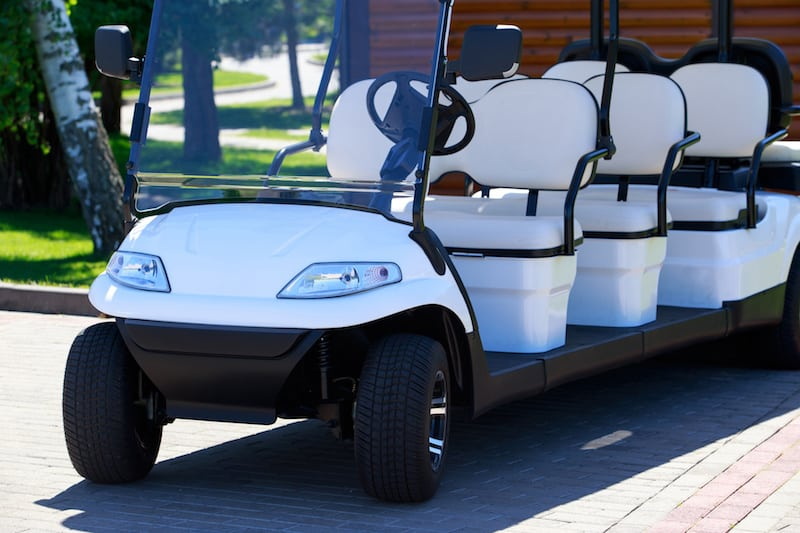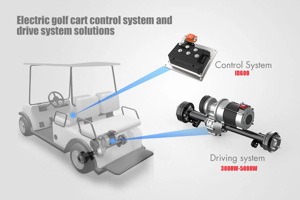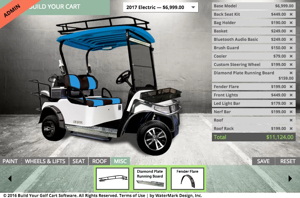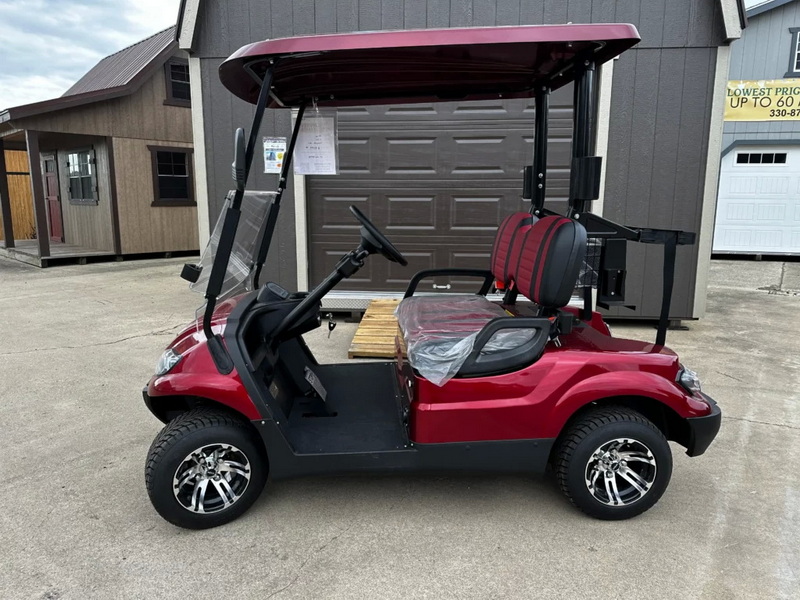Content Menu
● Understanding Your Electric Golf Cart
>> Key Components
>> Battery Types
● Steps to Start an Electric Golf Cart
>> Check the Battery Level
>> Ensure Safety
>> Locate the Ignition Switch
>> Set Direction
>> Press the Brake Pedal
>> Accelerate
● Troubleshooting Common Issues
● Maintenance Tips for Electric Golf Carts
>> Regular Battery Maintenance
>> Tire Maintenance
>> General Cleaning and Care
● Safety Guidelines When Operating an Electric Golf Cart
● Understanding Golf Cart Regulations
● Conclusion
● Frequently Asked Questions (FAQs)
>> 1. What should I do if my electric golf cart won't start?
>> 2. How often should I charge my electric golf cart?
>> 3. Can I drive my electric golf cart in wet conditions?
>> 4. How do I maintain my electric golf cart's battery?
>> 5. Is there a weight limit for passengers in an electric golf cart?
Starting an electric golf cart is a straightforward process, but it requires attention to detail to ensure safety and functionality. This guide will walk you through the steps needed to start your electric golf cart, along with helpful tips, troubleshooting advice, and safety considerations.

Understanding Your Electric Golf Cart
Electric golf carts are powered by batteries and have several components that need to be checked before starting. Familiarizing yourself with these components can help you operate the cart more efficiently.
Key Components
- Battery: The power source for the cart.
- Ignition Switch: Used to turn on the cart.
- Accelerator Pedal: Engages the motor for movement.
- Brake Pedal: Stops the cart.
- Forward/Reverse Switch: Determines the direction of travel.
- Charger Port: Where you connect the charger to recharge the battery.
Battery Types
There are different types of batteries used in electric golf carts, including:
- Lead-Acid Batteries: Commonly used due to their affordability. They require regular maintenance and water refills.
- Lithium-Ion Batteries: More expensive but lighter and require less maintenance. They offer longer life cycles and faster charging times.

Steps to Start an Electric Golf Cart
Starting an electric golf cart involves several steps that ensure you do it safely and effectively.
Check the Battery Level
Before starting, ensure that the battery is fully charged. You can check the battery level using the battery meter usually located on the dashboard. If the battery is low, connect it to a charger.
Ensure Safety
Make sure you are in a safe area, free from obstacles and people. All passengers should wear seatbelts before starting. It's also advisable to ensure that no one is standing in front or behind the cart when starting.
Locate the Ignition Switch
Find the key ignition switch, typically located on the dashboard or steering column. Insert the key and turn it to the "on" position.
Set Direction
Adjust the forward/reverse switch to your desired direction of travel (forward or reverse). This step is crucial because attempting to start while in reverse can lead to accidents.
Press the Brake Pedal
Before moving, press down on the brake pedal to disengage any parking brake that may be engaged. This ensures that you have control over the cart when it starts.
Accelerate
Gently press down on the accelerator pedal. Electric golf carts may take a moment to respond, so be patient as the motor engages.
Troubleshooting Common Issues
If your electric golf cart does not start, consider these troubleshooting steps:
- Check Connections: Ensure all battery connections are secure. Loose connections can prevent power from reaching essential components.
- Inspect Fuses: Look for blown fuses that may prevent starting. Most carts have a fuse box that can be accessed easily.
- Battery Charge: Confirm that the battery is charged. If it's not holding a charge, it may need replacement or servicing.
- Motor Functionality: Listen for any unusual sounds when attempting to start; grinding or clicking noises could indicate motor issues.
If issues persist after these checks, consult your owner's manual or contact a professional for assistance.

Maintenance Tips for Electric Golf Carts
Proper maintenance of your electric golf cart will prolong its life and improve performance. Here are some essential maintenance tips:
Regular Battery Maintenance
- Check Water Levels: For lead-acid batteries, regularly check and refill water levels with distilled water if necessary.
- Clean Terminals: Ensure battery terminals are clean and free from corrosion. Use a mixture of baking soda and water for cleaning if needed.
Tire Maintenance
- Check Tire Pressure: Maintain proper tire pressure as indicated in your owner's manual. Under-inflated tires can affect performance and increase wear.
- Inspect Tread Wear: Regularly check for uneven tread wear which could indicate alignment issues or suspension problems.
General Cleaning and Care
- Wash Your Cart: Regularly wash your golf cart with mild soap and water to remove dirt and debris that could cause damage over time.
- Protect from Elements: If possible, store your golf cart in a garage or covered area to protect it from harsh weather conditions.

Safety Guidelines When Operating an Electric Golf Cart
Operating an electric golf cart safely is crucial for avoiding accidents and ensuring a pleasant experience. Here are some safety tips:
- Always wear a seatbelt.
- Do not exceed weight limits (usually around 750 pounds).
- Avoid driving on wet or slippery surfaces as this increases the risk of losing control.
- Do not operate on steep inclines without caution; always assess your surroundings before proceeding.
- Use hand signals when turning or stopping if you're driving in a crowded area or on a course with other golfers around.
Understanding Golf Cart Regulations
Different regions have specific regulations regarding golf cart usage on public roads or within communities. Familiarize yourself with local laws regarding:
- Speed Limits: Many areas have speed limits for golf carts, typically between 15–25 mph.
- Road Usage: Some areas allow golf carts on public roads while others restrict them to designated paths only.
- Licensing Requirements: In some regions, you may need a driver's license or special permit to operate a golf cart legally on public roads.
Conclusion
Starting an electric golf cart involves checking various components and following specific steps to ensure safety and functionality. By familiarizing yourself with your cart's features and adhering to safety guidelines, you can enjoy a smooth ride on the golf course or wherever you choose to drive. Regular maintenance will also contribute significantly to its longevity and performance, allowing you to make the most out of your investment in an electric golf cart.

Frequently Asked Questions (FAQs)
1. What should I do if my electric golf cart won't start?
Check if the battery is charged, ensure all connections are secure, inspect fuses for any blown ones, and listen for unusual sounds from the motor indicating potential issues.
2. How often should I charge my electric golf cart?
It is recommended to charge your electric golf cart after every use or when the battery meter indicates a low charge—typically when it drops below 50%.
3. Can I drive my electric golf cart in wet conditions?
It is not advisable to drive in wet conditions as it increases the risk of slipping and losing control; however, if necessary, proceed with extreme caution at reduced speeds.
4. How do I maintain my electric golf cart's battery?
Regularly check water levels (for lead-acid batteries), keep terminals clean from corrosion, avoid deep discharges by charging promptly after use, and store in a cool environment when not in use.
5. Is there a weight limit for passengers in an electric golf cart?
Yes, most electric golf carts have a weight limit of around 750 pounds; exceeding this can affect performance and safety significantly during operation.












































